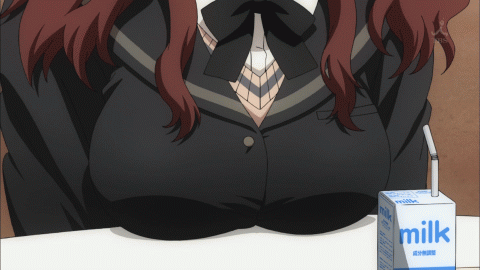Bungou Stray Dogs S2: 1-4
I decided to do this writeup because duckroll is being a stubborn bastard. Let me first start off by saying that I dropped the show during initial broadcast because the tone was chaotic and I didn't connect with any of the characters. Season 1 is a mess. The only time I think S1 is actually good is episode 7-10, which I'll go into some other time. The reason I'm saying all of this is because I know a few of you dropped the show for similar reasons. So when resuming my watch of the show I went in with a somewhat cynical perspective and went into S2 possibly even more jaded. However this opening arc of the second cour of Bungou Stray Dogs is really something exceptional. It's detached enough as well so that if you dislike or generally hated the cast in S1, you can still watch this four-parter with little grief. Honestly it's so different from the rest of the show in almost all facets that it should be viewed as its own entity. They could have easily released this as a standalone movie. So if you hate the rest of the franchise, it's not an excuse not to watch this.
What makes this so phenomenal isn't the originality, nothing in this arc hasn't been done before. It's the execution. I've watched a lot of anime, too much unfortunately, over a number of years and this is the closest I've gotten to a spiritual Cowboy Bebop sequel (it's actually probably closer to a remake). I would have never guessed that Igarashi had this in him. Yea he's done good to great stuff but this is far and away the strongest effort I've seen from him. It's not just the storyboarding though but the sound direction, animation, layouts, color usage, and general narrative quality.
The show goes full noir on almost all fronts and the show skyrockets from a quality standpoint as a result. It's sort of like the difference between Fate/Zero and Fate/Stay Night in that by having an older protagonist, there's more weight to his background and decisions. The audience knows this arc is going end in tragedy but the show makes you care about some of the new characters such as Oda. It really establishes that Oda is a good person despite his shady work and background. He goes to lengths to avoid killing, takes care of kids, and is generally the most likable of the new main trio. He has an actual life goal that doesn't involve fighting or killing. Not to mention he plays well off Dazai due to contrast.
Even non-new characters such as Dazai are noticeably more interesting compared to their regular variants. Dazai has a certain edge to him that is missing in the present era. While he's still goofy, he's also more serious and it serves his character well. Aspects like Dazai's suicide gimmick are suddenly treated solemnly in that it ties into Oda's impression of Dazai and Oda's characterization. Hell, Edogawa makes an appearance and while it's initially done in a jokey fashion, he's used as a way of confirming the determination of Oda.
It's not just the characters though. This arc treats Port Mafia like an actual mafia organization, something the show never did well before or after. There is a structured hierarchy that has long term business goals along with minor mafia things like protection rackets. It feels like an actual world now with things such as government intrusion. Expanding on that note, there's more of an emphasis on guns and it again helps to ground this show oriented around super powers. The final fight has two people using superpowers to predict each other's moves but they're also using wrist-mounted pistol reloaders. The whole thing feels real in a manner that the 'regular' show never did.
This is the story about a man essentially trying to become a better person before realizing that he can't and that he's doomed to wander the darkness. There's the feeling that you can't run from your past and that a person can't change who they are. Dazai is working for Port Mafia to fill a void in himself but discerns at the end that he's gonna have to live with that feeling of emptiness. He might be able to move forward while Oda was yanked back into his past and couldn't escape it. It's interesting how the positions became reversed over the course of the arc. At the end, Dazai was trying to talk Oda down instead of the other-way around in episode 1.
I thought about doing a webm of this scene but feel it's better seen in the episode.
I wanted to talk about this scene as it's far and away the most emotionally charged sequence of the show and it's masterfully directed. If Julia's death in Cowboy Bebop was beautiful, almost surreal, then this is ugly. Oda is physically blown back by an explosion and a result suffers temporary noise-induced hearing loss. Besides the realism of the scene in that being so close to an explosion would cause the ringing, it serves as a way of inserting the audience into Oda through sound. Just as Oda can't hear himself scream, the audience can't as well. The show is syncing viewpoints which then flows into Oda's mental space. The silence in Oda's mind while talking to the author is punctuating his loss. This contrast of sound again works when the show transitions back into reality where the ringing is gone and we can hear Oda screaming in full clarity. I have to give Suwabe a ton of praise just for this scene. I can't imagine how many takes it took to get this right. You can hear him
trying to scream in a belabored breathing sort of way, only for it at the end to slowly progress into an actual cry.
It's so goddamn raw.
That was just the audio. The line work takes a 'sketchy' stance to show Oda's mental breakdown. It's not really that prominent but it's there enough to visually illustrate Oda's emotion. The storyboarding is also a bit clever by having the author disappear when Oda says he can't write anymore. The author was Oda's internal voice reigning him in and serving as his beacon. That's dead now along with his future. He's all alone.
Oda's assault on the mansion seems like a big homage to Spike's final raid on Vincent's building. It's storyboarded
similarly I think early on. There's also the Shinbo-like primary color usage on Oda and Gide, during the final duel, reflecting their emotions. Oda is cold and dead to the world at this point while Gide is enjoying his final dance. I feel that this is a prime example of Igarashi at his peak and what he could potentially be with great source material. His voice came through loud and clear. It's a shame that the rest of the series isn't of this caliber.



























